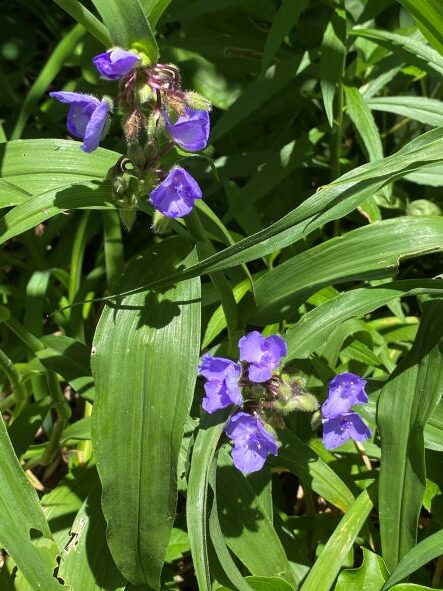Our History
Dogwood sapling in a recovering woodland

Aletheia E. Pattison, Scarborough patron
Aletheia Pattison lived on Dexter Place, across the street from the property she named Scarborough Woods. “I have great fondness for this property, having spent many hours walking the grounds, enjoying the wildlife and stately trees,” she wrote in a letter stating her donation of the property to the Cincinnati Board of Park Commissioners. “I hope many have the same enjoyment for years to come.” The elegant portrait of Aletheia, at left in her Dexter Place home, suggests the strength of a woman who risked her life performing refugee work in France, Poland, and Greece during the years following World War I. In a 1941 article in the Vassar Quarterly, Aletheia is quoted as saying that she came to Macedonia, Greece, in 1924 “to stay for three days, but the League of Nations refugee unit asked me to stay and help and I’ve been here ever since.”

Neighbors undertake a labor of love
During the last few years, East Walnut Hills residents whose properties adjoined the woods decided to confront the challenge of invasive species that had expanded into the woods and were threatening the health of the remaining overstory trees. These volunteers enlisted the guidance of Cincinnati Park Board naturalists and began the slow process of removing bush honeysuckle and invasive vines. In the fall of 2021, Scarborough volunteers planted 165 native saplings and shrubs — including blossoming dogwoods — provided by Cincinnati Parks.

A 501(c)3 is established
In the spring of 2022, Scarborough Woods volunteers established Preserve Scarborough Woods, Inc., a 501(c)3 non-profit organization. As a non-profit organization, Preserve Scarborough Woods can receive donations that are deductible in accordance with existing tax laws. Donations will be used to fund ongoing work in the woods.
Why do we love Scarborough Woods?
A native plant forest provides many benefits to the immediate and surrounding neighborhoods. These include cleaner air and cooler temperatures in hot weather. Forests absorb heavy rainfall, sequester CO2, promote biodiversity, and support pollinating bees, butterflies, and other insects. A walk in the woods can also benefit our mental health, as research studies have repeatedly shown — and as poets have said throughout the ages.
